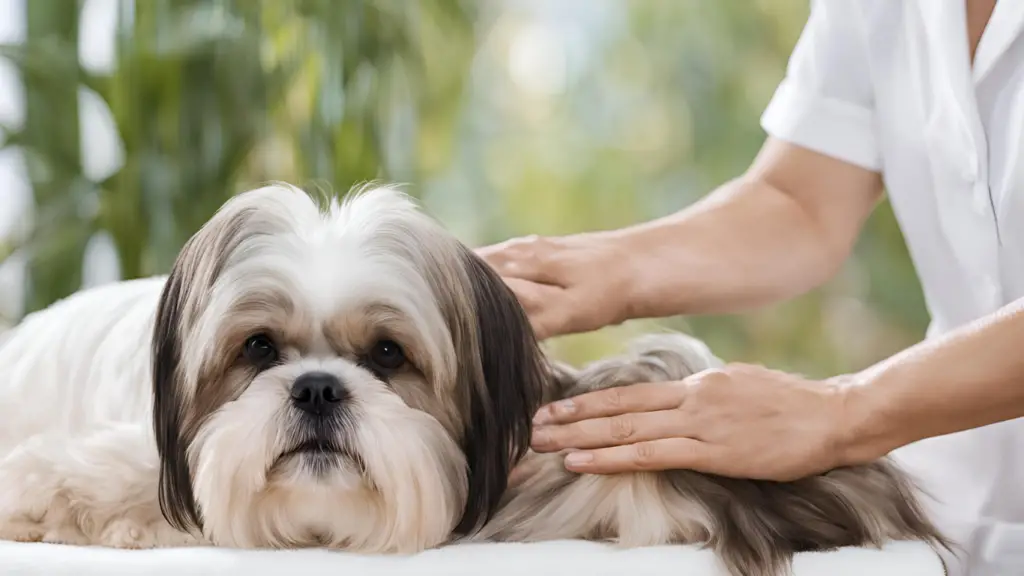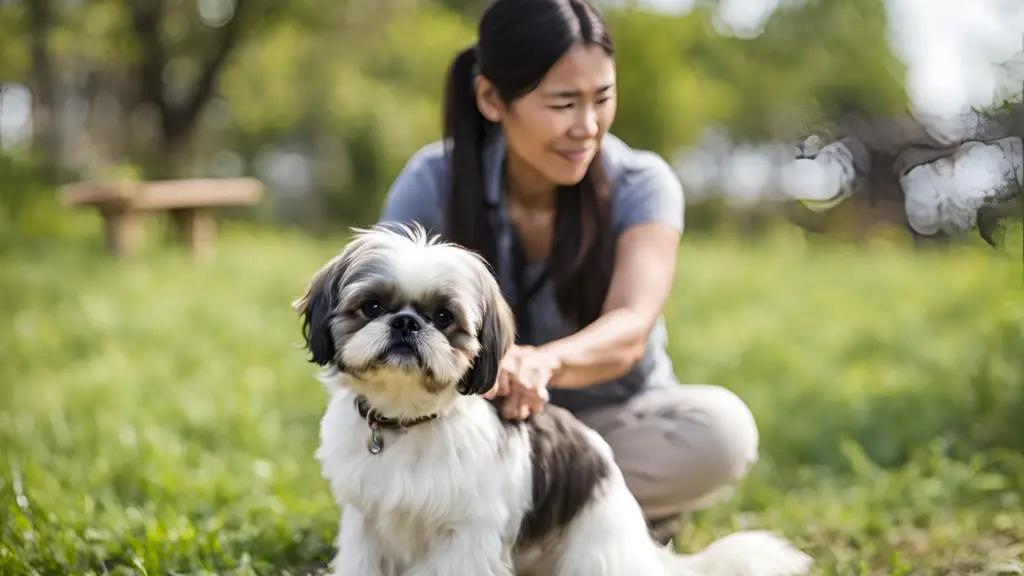
Raising a Shih Tzu puppy can be a delightful and rewarding experience. However, it’s important to navigate this journey with care to ensure your puppy grows into a happy and healthy adult dog. Mistakes during the early stages of your Shih Tzu’s life can lead to behavioral issues, health problems, and a strained relationship between you and your pet. This comprehensive guide will highlight common mistakes to avoid when raising a Shih Tzu puppy, helping you provide the best care for your new furry friend.
1. Neglecting Socialization

Why Socialization is Crucial
Socialization is vital for your Shih Tzu puppy’s development. Proper socialization helps your puppy become well-adjusted and confident, reducing the likelihood of fear and aggression. Without adequate socialization, your puppy may develop behavioral issues, such as excessive barking, fearfulness, or difficulty interacting with other dogs and people. Early exposure to various environments, sounds, and experiences helps your puppy adapt to new situations and become more resilient.
Socialization should begin as early as possible, ideally when your puppy is between 8 and 16 weeks old. Introduce your Shih Tzu to different people, animals, and environments in a controlled and positive manner. This exposure helps your puppy learn how to behave appropriately in various situations and reduces anxiety and stress. Ensure that these experiences are positive and rewarding, using treats and praise to reinforce good behavior.

Neglecting socialization can lead to long-term issues that are more challenging to address as your Shih Tzu matures. A well-socialized puppy is more likely to grow into a well-behaved and adaptable adult dog, making socialization a crucial aspect of your puppy’s early development.
2. Inconsistent Training
The Importance of Consistency
Consistency in training is essential for your Shih Tzu puppy’s development. Inconsistent training can confuse your puppy and hinder their learning. When training commands and behaviors, it’s important to use the same words, gestures, and expectations every time. Inconsistent training can lead to behavioral issues and slow progress in your puppy’s development.
Establish clear rules and boundaries for your puppy from the start, and ensure that all family members are on the same page. Consistency in training helps your puppy understand what is expected of them, making it easier for them to learn and follow commands. Use positive reinforcement techniques, such as treats and praise, to encourage good behavior, and avoid using punishment or negative reinforcement, which can create fear and anxiety.

Regular and consistent training sessions are key to helping your Shih Tzu puppy develop good habits and behaviors. Short, frequent training sessions are more effective than long, sporadic ones. Consistency helps build a strong bond between you and your puppy and ensures that they grow into a well-mannered and obedient adult dog.
3. Overfeeding and Poor Diet Choices
The Risks of Overfeeding
Feeding your Shih Tzu puppy the right amount and type of food is crucial for their health and development. Overfeeding can lead to obesity and related health issues, such as diabetes and joint problems. It’s important to follow the feeding guidelines provided by your veterinarian or pet food manufacturer to ensure your puppy receives the appropriate amount of nutrients.

Provide a balanced diet that meets your puppy’s nutritional needs. Shih Tzu puppies require a diet rich in protein, vitamins, and minerals to support their growth and development. Avoid feeding your puppy table scraps or human food, which can lead to poor nutrition and obesity. Consult your veterinarian for recommendations on high-quality puppy food that is suitable for your Shih Tzu’s specific needs.
Monitor your puppy’s weight and body condition regularly. Adjust their food intake as needed to maintain a healthy weight and consult your veterinarian if you have any concerns about your puppy’s diet or weight. Proper nutrition is essential for your Shih Tzu’s overall health and well-being, so make informed decisions about their diet and feeding routine.
4. Ignoring Regular Veterinary Check-ups

The Importance of Regular Vet Visits
Regular veterinary check-ups are crucial for your Shih Tzu puppy’s health and well-being. Routine vet visits help detect and address health issues early, ensuring that your puppy receives timely treatment. Ignoring regular check-ups can lead to undiagnosed health problems that may become more severe over time.
Schedule your puppy’s first vet visit as soon as you bring them home, and follow up with regular appointments as recommended by your veterinarian. Regular vaccinations, parasite prevention, and health screenings are essential to keep your puppy healthy and protected from diseases. Your veterinarian can also provide valuable advice on nutrition, grooming, and overall care, helping you provide the best possible care for your Shih Tzu.

Establish a good relationship with your veterinarian and communicate openly about any concerns or changes in your puppy’s health. By prioritizing regular veterinary care, you can help ensure your Shih Tzu’s long-term health and well-being.
5. Neglecting Exercise and Mental Stimulation
The Need for Regular Exercise
Exercise and mental stimulation are important for your Shih Tzu puppy’s physical and mental health. Lack of exercise can lead to boredom, obesity, and behavioral issues, such as excessive chewing or digging. Shih Tzus are a small, active breed that requires regular exercise to stay healthy and happy.

Incorporate daily walks and playtime into your puppy’s routine. Engage in activities that stimulate their mind and body, such as puzzle toys, training games, and interactive play. Regular exercise helps your puppy maintain a healthy weight, build muscle, and develop good social skills. It also provides an opportunity for bonding and building a strong relationship with your puppy.
Neglecting mental stimulation can lead to destructive behaviors and a lack of engagement. Provide a variety of toys and activities to keep your Shih Tzu’s mind active and prevent boredom. Mental stimulation is just as important as physical exercise for your puppy’s overall well-being.
6. Inadequate House Training

The Basics of House Training
House training is an essential aspect of raising a well-behaved Shih Tzu puppy. Inadequate house training can lead to accidents and confusion for your puppy. Establish a consistent routine for feeding and potty breaks, and ensure that you take your puppy outside frequently, especially after meals and naps.
Use positive reinforcement to encourage good potty habits. Praise and reward your puppy immediately after they go potty outside. Avoid punishment for accidents, as this can create fear and hinder the training process. Instead, focus on reinforcing good behavior and maintaining a consistent schedule.
Create a designated potty area outside and guide your puppy to it regularly. Consistency and patience are key to successful house training, so stick to your routine and provide ample opportunities for your puppy to learn. With time and effort, your Shih Tzu will become reliably house trained.
7. Overlooking Grooming Needs

The Importance of Regular Grooming
Grooming is an important aspect of caring for your Shih Tzu puppy. Overlooking grooming needs can lead to matting, skin infections, and discomfort. Shih Tzus have a long, dense coat that requires regular brushing to prevent tangles and mats.
Establish a grooming routine that includes brushing, bathing, nail trimming, and ear cleaning. Regular grooming helps maintain a healthy coat and skin, and allows you to check for any signs of health issues. Introduce your puppy to grooming gradually and use positive reinforcement to make the experience enjoyable.
Regular grooming also provides an opportunity to bond with your puppy and reinforces the importance of maintaining their hygiene. By incorporating grooming into your routine, you can help ensure that your Shih Tzu remains clean, healthy, and comfortable.
8. Skipping Training Socialization

The Role of Socialization in Training
Training and socialization go hand in hand in raising a well-adjusted Shih Tzu puppy. Skipping socialization can lead to behavioral issues and anxiety in your puppy. Socialization helps your puppy learn to interact appropriately with other dogs, people, and environments.
Incorporate socialization into your training routine by exposing your puppy to various experiences and stimuli. Introduce them to different people, animals, and settings in a positive and controlled manner. Use treats and praise to reinforce good behavior during socialization experiences.
Training should be consistent and positive, focusing on teaching your puppy commands and reinforcing good behavior. Combine training with socialization to help your puppy develop confidence and adaptability. A well-socialized and trained puppy is more likely to grow into a well-behaved and happy adult dog.
9. Ignoring Behavioral Cues

Understanding Your Puppy’s Body Language
Understanding and responding to your Shih Tzu puppy’s body language is essential for effective training and care. Ignoring behavioral cues can lead to misunderstandings and unresolved issues. Pay attention to your puppy’s signals, such as tail wagging, ear positioning, and vocalizations.
Learn to recognize signs of stress, fear, or discomfort in your puppy. Address these issues promptly to prevent them from escalating. Respond to your puppy’s needs with patience and empathy, providing reassurance and support when needed.
Effective communication with your puppy helps build trust and strengthen your bond. By being attentive to their needs and behaviors, you can create a positive and supportive environment for your Shih Tzu. Understanding and addressing your puppy’s cues ensures a happier and healthier relationship.
10. Failing to Provide a Safe Environment

Creating a Safe Space for Your Puppy
Providing a safe and secure environment is crucial for your Shih Tzu puppy’s well-being. Failing to do so can lead to accidents and injuries, as well as behavioral issues. Ensure that your home is puppy-proofed by removing hazards such as toxic plants, small objects, and exposed electrical cords.
Create a designated area for your puppy to sleep and play. This space should be comfortable and free from potential dangers. Use baby gates or pens to restrict access to certain areas of your home, and supervise your puppy when they are exploring new environments.

Providing a safe environment helps your puppy feel secure and reduces anxiety. A well-secured home allows your puppy to explore and play without the risk of injury. By prioritizing safety, you can create a comfortable and enjoyable space for your Shih Tzu puppy.
Conclusion
Raising a Shih Tzu puppy requires careful attention to their needs and development. Avoiding common mistakes can help ensure that your puppy grows into a healthy, well-behaved, and happy adult dog. Prioritize proper socialization, consistent training, and a balanced diet to support your puppy’s physical and emotional well-being. Regular veterinary care, exercise, and grooming are essential components of responsible pet ownership.
By being attentive to your puppy’s needs and avoiding these common mistakes, you can create a positive and supportive environment that fosters their growth and development. With patience, consistency, and love, you can raise a Shih Tzu puppy that is well-adjusted, healthy, and a joy to be around. Your efforts in avoiding these pitfalls will pay off in the form of a happy and fulfilling relationship with your furry companion.


